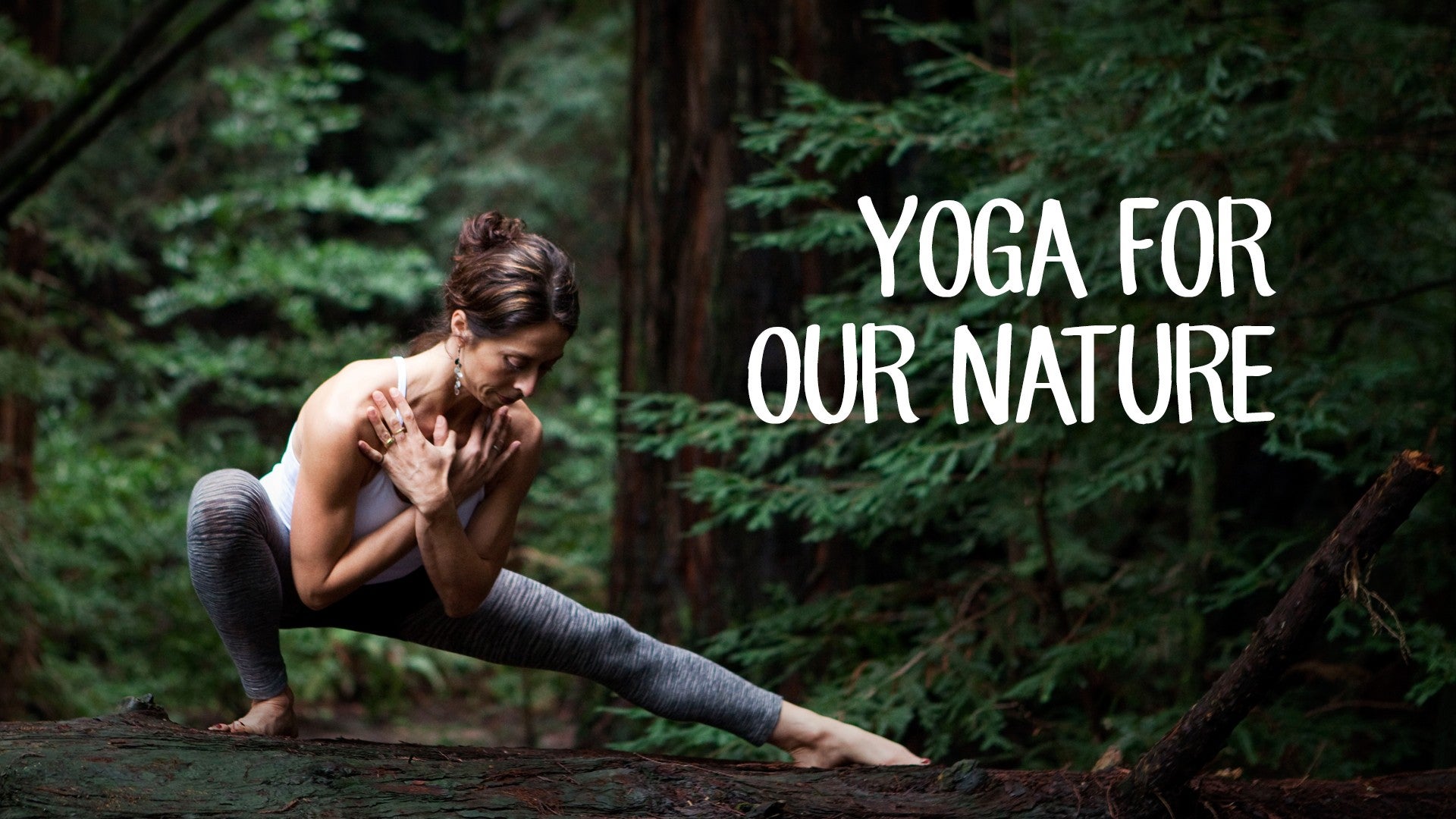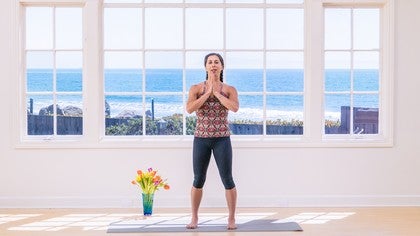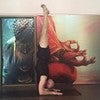Description
About This Video
Transcript
Read Full Transcript
(waves on beach) Namaste, and welcome to the Yoga for Our Seasons talk. In this time together, I want to help us appreciate and celebrate our connection to nature, and to encourage us to consider time outside in nature as part of our practice. And the Ayurvedic yogis often have a saying that we are one with nature, that we are not separate from nature, made up of the same five elements: ether, air, fire, earth, and water. And so the more that we get to know nature around us, the more that we actually know ourself. That self that gets quiet when we're in the presence of nature.
So it's a win-win situation, to learn about yourself as well as to learn about the environment where you live. And so, what does it take to get us to be outside in nature? I've noticed over the years, more and more of healing that happens when I spend time outside. It's something that I've been aware of for a long time, but something that has been more apparent, that healing really, truly happens outside in nature. When we are mindfully walking, when we are listening to the world around us, when we are seeing the trees, the light, the plants, the ocean.
When we're receptive to the elements, how much of the worldly challenges dissolve in the presence of the natural world. I get that there's this strong encouragement in Ayurveda to be outside, and to allow nature to heal you. There's a statement that physicians don't heal, nature heals, and as supportive as a physician, a yogi, any kind of healthcare practitioner might be, that some of our imbalances arise from imbalances in the mind, for example, a state of mind that we're in. If we go outside, there's often the experience that hopefully you've had as well, where you start to feel that mind-state change in the presence of the quiet, natural environment. And you get to actually see yourself again and remember your wholeness without some of the struggles that we find when we're in our daily life, that we can go out to nature, and nature does a beautiful job composting, in some way, our troubles and our worries.
So we come back to, again, remembering who we actually are. And then from that place, we start to realize that we are like nature, and that we are always changing, like nature is changing, it's an opportunity to embrace impermanence. I find that if I make a seasonal change, a seasonal commitment, that some habits that might be growing in one season have the opportunity to change, if my intention is to live more with the seasons. I create more diversity by making interruptions in my life, season to season. So that like nature, I am stronger with diversity.
So those are a few of the ideas of why being outside in nature is valuable, helpful, for your health, and to help you connect more to natural rhythms, observe changes. The yogis also talk about a few other bigger seasons of life that we all go through, "God willing, if the Creek don't rise", as Robert Suvoda used to say, so we all often experience a season of life, the student phase, called "Brahmacharya", which is where we experience the need for more love, and nourishment, and good food, as we're building the foundation, the core, of who we are. It's a time for regular exercise, which is always good for Kapha, a time to learn to respect and to study. And then, we all go through another really big season of life, the adult phase, where it's a very Pitta time of life, and often there's a lot of stress as we enter our careers and our family life where the yoga practice goes from "me" to "we", and that our responsibilities are really a big part of our yoga practice in that season of life. So doing regular pranayama practice to calm the mind and to relax yourself are really helpful to maintain your health for that long season of life.
And then the last season of life that we all experience Is the lightening up and the Vata phase after retirement. When we enter that retirement phase, the Vata phase, it's a time to be independent, to be in community of like-minded people that are also beginning to realize the reality of death down the road, and a time to accept the reality that we're leaving this body. Shavasana is a wonderful practice to do to reflect on some of the greater questions of, "what would I regret not doing in this life if this was my last day? If this was my last breath?" The more that we reflect on that question, hopefully we live each day without any regret for all the days that we have left. So that's some way of looking at the big seasons of life that we all will go through.
In the next section, I'll be introducing more about the individual seasons, and the seasons of the day that we go through together, year in and year out. So I hope in some way, that helps to inspire you to include time outside in nature as part of your practice and, as much as possible, to be in a meditative state, to be receptive to the elements when you're outside, to let them do their healing for you and how lucky we all are to have access to some nature all the time, and to see how inexpensive and free it is for everybody. So please, get out, enjoy your nature, and I look forward to meeting you again. Namaste.
Yoga for Our Nature
Comments
You need to be a subscriber to post a comment.
Please Log In or Create an Account to start your free trial.













